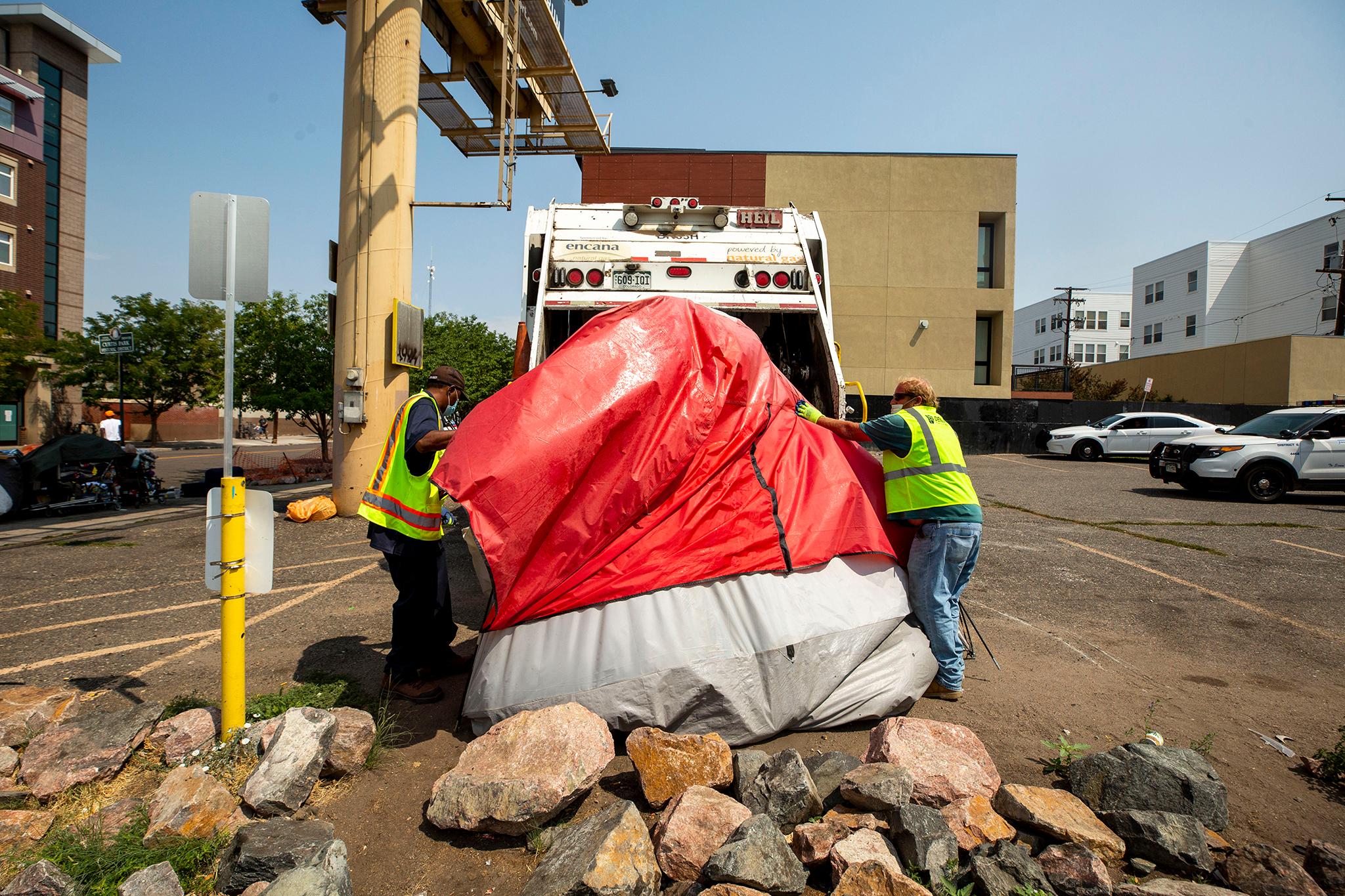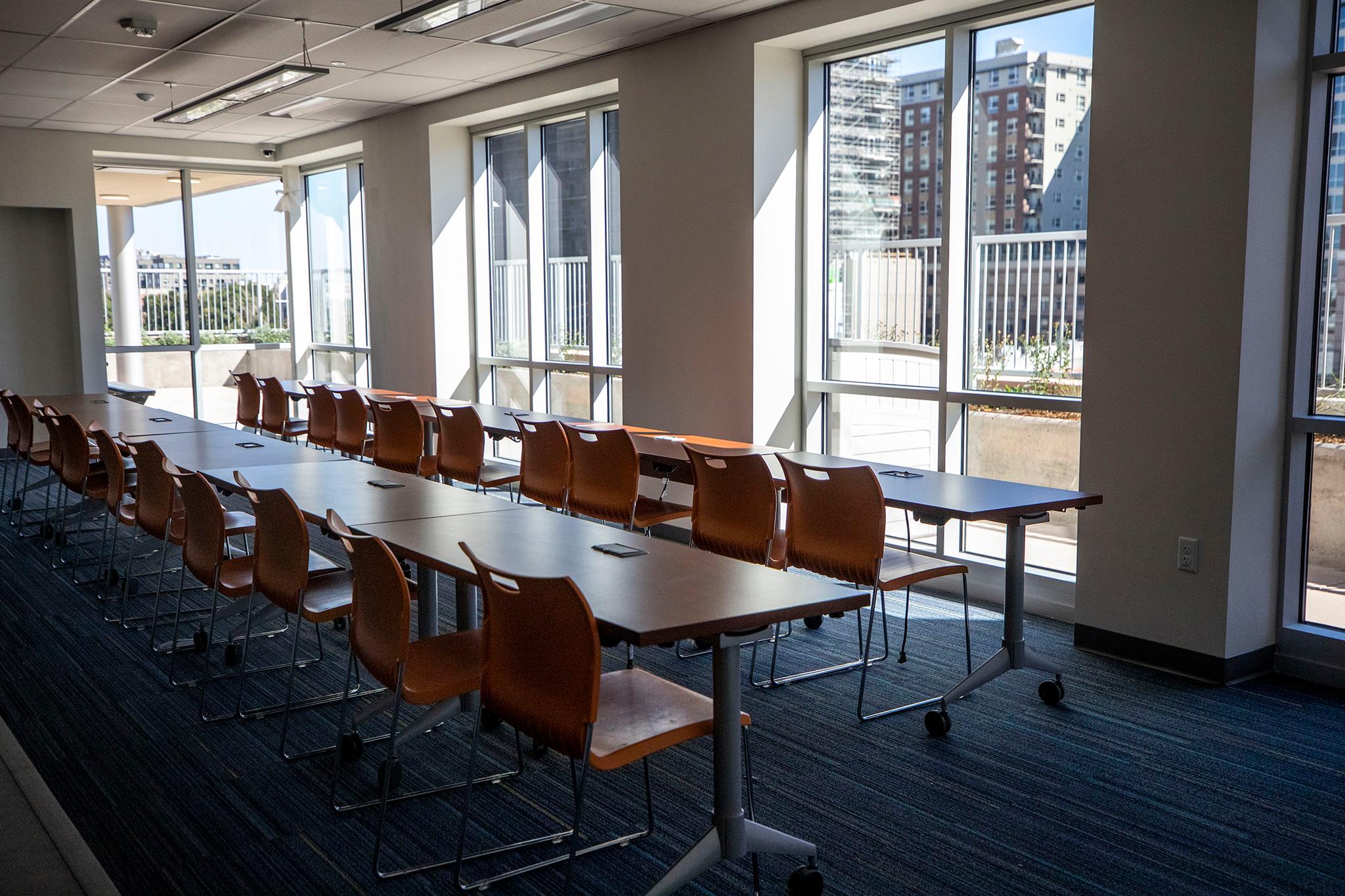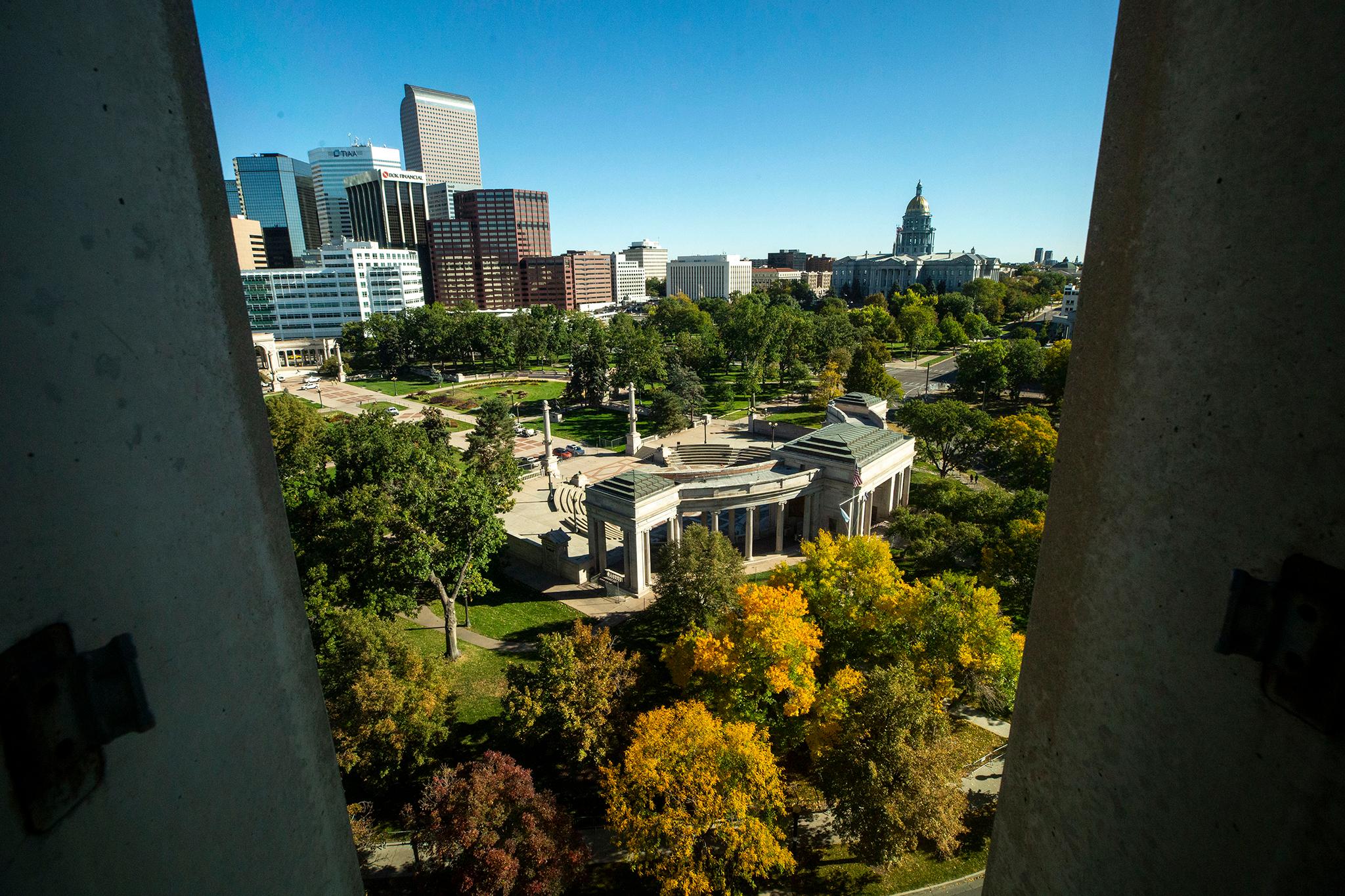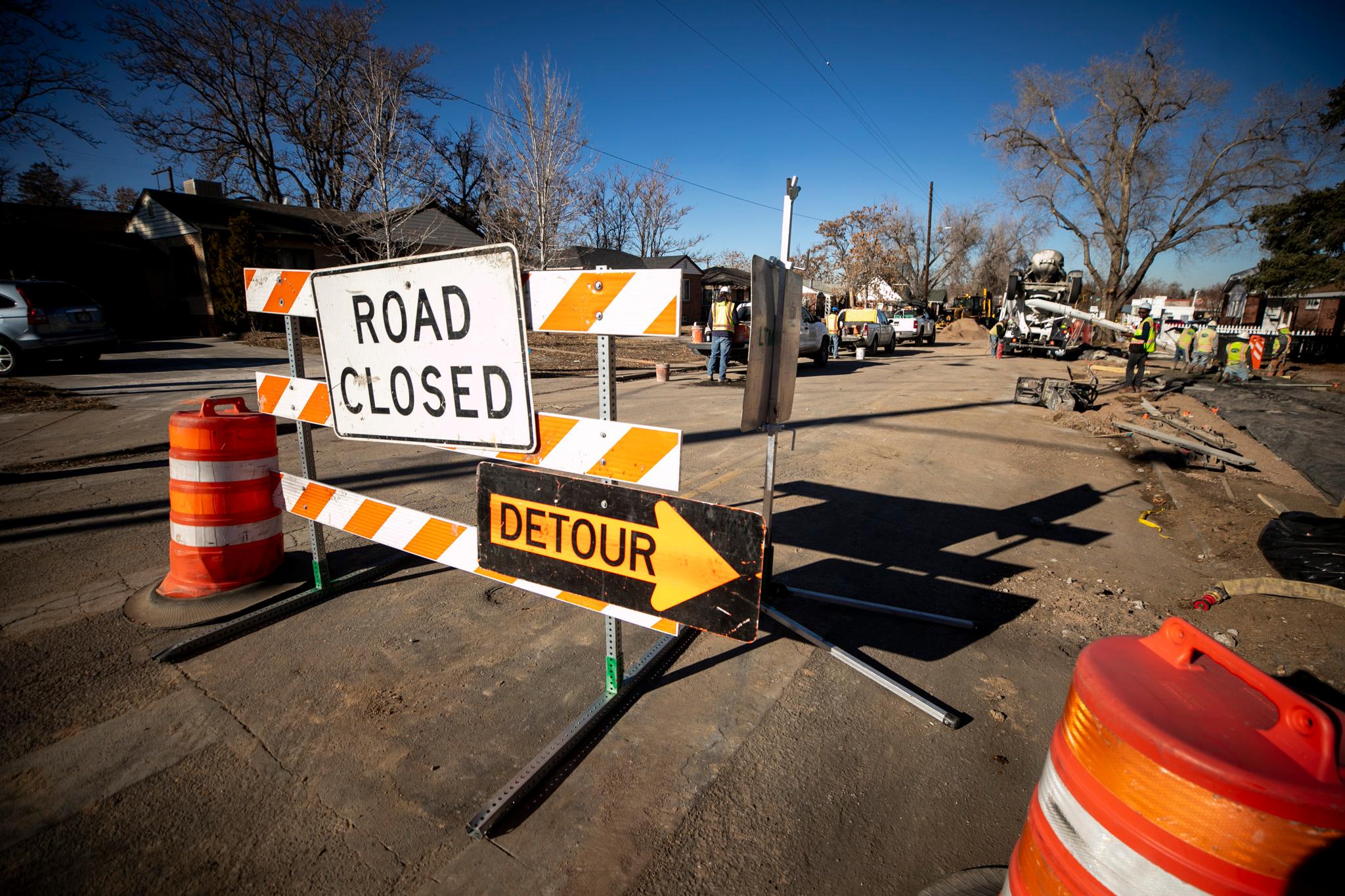The city's efforts to clear tents and other belongings from pathways and ensure public health sent people experiencing homelessness on the move in Five Points this week.
As city workers loaded tents and other belongings into trash trucks, people who came to the scene to protest the displacements confronted police who were monitoring the cleanups, leading to a total of eight arrests Tuesday and Wednesday. The arrests were for assaulting an officer, investigation of aggravated assault on an officer, disobeying a lawful order and investigation of interference with the police. One person was arrested for an outstanding warrant. Denver Police Department spokesman Doug Schepman said he had not details on the warrant. He described all of those arrested as protesters and said his department did not believe any were experiencing homelessness.
The Department of Transportation and Infrastructure had posted notices of cleanups Tuesday and Wednesday to remove tents and other material blocking the right of way in the area along Park Avenue and 22nd Street from Curtis to California streets. As that department began its work Tuesday morning, the Department of Public Health & Environment added notices that part of that area was being closed because conditions there presented health and environment risks.
People took down tents, loaded them and other belongings onto wagons and carts, and moved a few blocks away. Outreach workers from the Mental Health Center of Denver spoke with people who were waking in their tents Tuesday. Volunteers helped people pack up their belongings and push heavy loads down the sidewalk.
While others moved along, Michael Lee initially said he was not leaving because he had nowhere to go.
"They try to arrest me? I'll go willingly," he said as he stood next to his tent.
Michael Lee said outreach workers had come by Friday and offered him and his girlfriend a hotel room. They told him they would return to move them on Monday.
But when the outreach workers returned, they said the room was no longer available because of a funding problem.
"They told us we had a hotel," he said. "We were ready to go."
Derek Woodbury, spokesman for the city's housing department, said the city and its service provider partners have been offering hotel rooms when people who ask for shelter cannot be accommodated in the shelter system. Couples, for example, cannot stay together in Denver shelters.
"While we continue to assist with motels on a case-by-case basis, we are balancing these resources to also assist with much needed hotel rooms that have sustained programming for women previously sheltered at Denver Coliseum," Woodbury said.
An emergency shelter had been set up for women and transgender individuals at the Coliseum in April as the pandemic strained shelters in Denver. Earlier this month, women and transgender individuals were moved from the Coliseum to older shelters and to hotels so that men could be sheltered at the Coliseum, which the city owns. An emergency shelter that had been set up for men in a facility at the nearby National Western Complex was closed when the city's National Western lease ended this month.
City officials and shelter providers have expressed concern that homelessness is growing amid the economic downturn created by the pandemic. In addition, shelters have had to reduce their capacity to allow for social distancing to stop the spread of disease. The city has proposed opening a new shelter.
Michael Lee said he has been without stable housing for five years and has camped along Stout Street since March. He said his prison record and lack of funds have made it hard to find housing. He had taped a sign to his tent that read, "Where is my housing? I would gladly trade this tent for housing." He said the advocacy group Denver Homeless Out Loud had offered him the sign.
"What do you think, I really want to be out here like this? Trying to sleep at night, hearing gun shots?" Lee said Tuesday. Wednesday, he, his tent and his girlfriend were no longer at their Stout Street spot.
Noel Geisel, who lives in a Five Points apartment, also spoke of a sense of anxiety. Geisel, who was picking up trash in his neighborhood Wednesday, said that after the cleanup began Tuesday morning, a man he has seen selling and using drugs in an encampment drove recklessly through a parking lot at Curtis Street and Park Avenue and that soon after shots rang out. It was the seventh of eighth time in a month he had heard gunshots in the neighborhood, Geisel said.
Geisel works with the Curtis Park Neighbors organization, which has lobbied for solutions such as creating city-sanctioned camping and other shelter alternatives, helping connect people to treatment if needed for such problems as drug addiction and, ultimately, building more housing. Jeff Baker, president of Curtis Park Neighbors, said outreach can be difficult when cleanups keep people on the move.
"We all can agree that housing .... is the solution," Baker added. But "that's not going to happen overnight."












